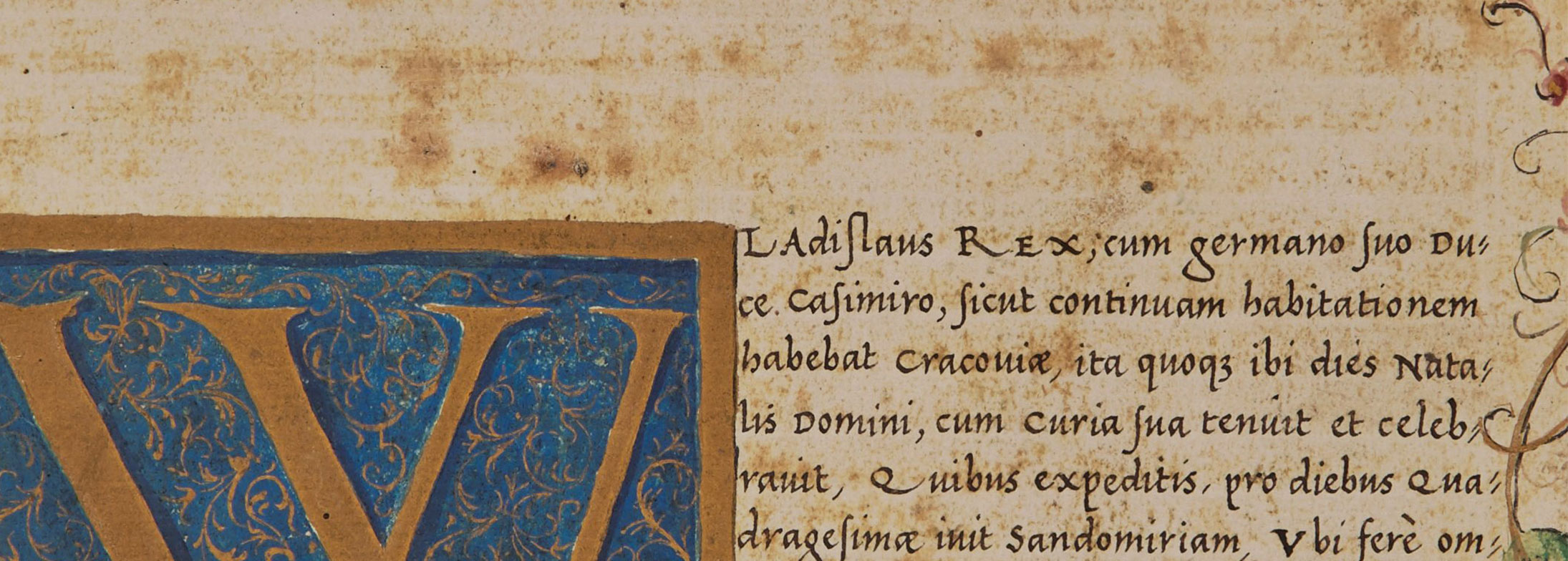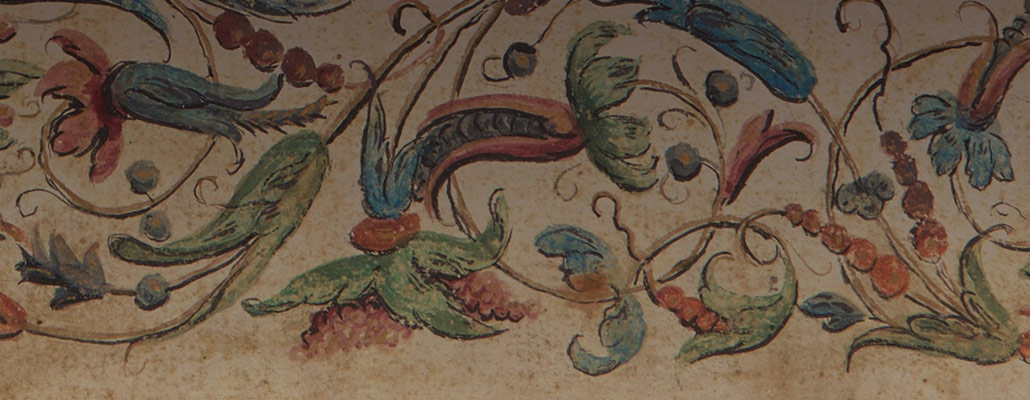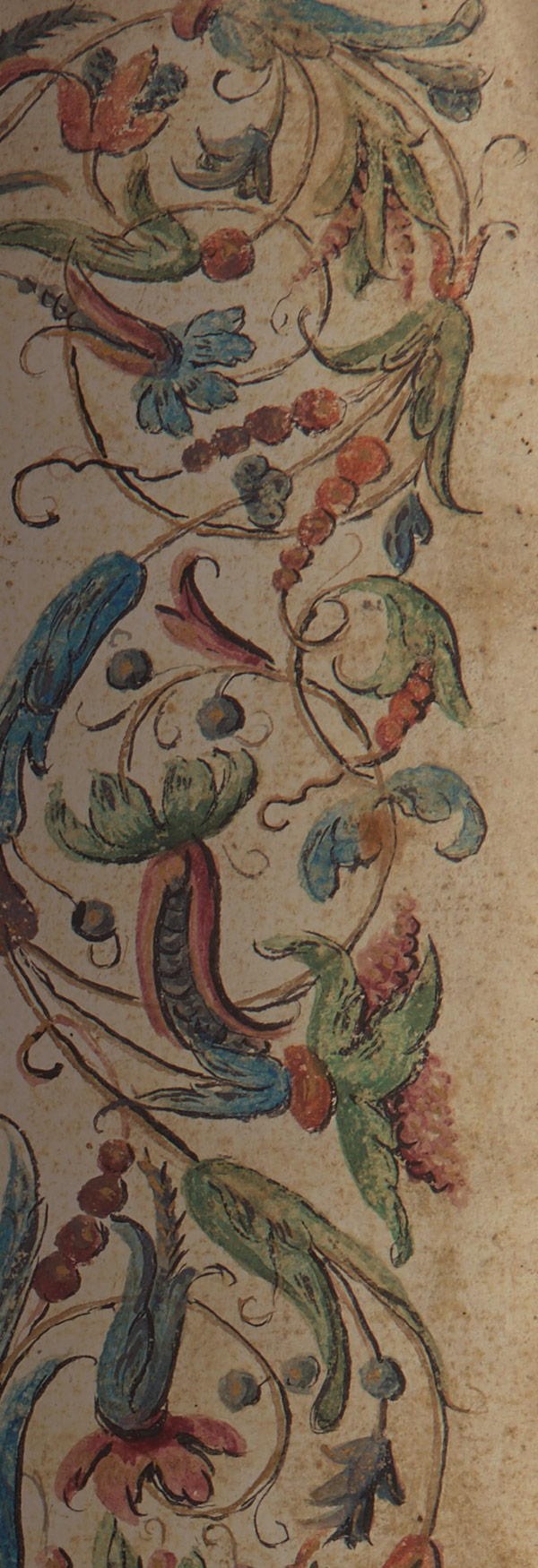About the Project

The aim of the website is to present Jan Długosz’s magnum opus – Annals, or Chronicles of the Famous Kingdom of Poland – as one of the pre-eminent historiographical works in late medieval Europe. The chronicle deserves closer study because of the amount of information it offers, as well as its prominent role in the formation of scholarly views on the medieval history of Central and Eastern Europe.
The website is intended for the wide audience interested in the history of Poland and Lithuania. At the same time, it is addressed to researchers interested in the Annals as a historical source and a literary work, as well as in their author – an eminent figure of the time.
The project has benefited from the generous support of several people and institutions who either hold the manuscripts of the Annals or own the copyright to the existing editions. Thanks to that, the material can now be published in the public domain, in the most effective way known today.


The features of the website have been so designed as to allow for the simultaneous display and examination of any two print or manuscript sources. The printed texts are fully searchable. To facilitate studying the text in the manuscripts, the facsimiles have been tagged according to the years discussed, in agreement with the annalistic structure of the work.
The manuscripts here presented, beginning with the so-called autograph of the Annals and ending with their late revised versions, demonstrate the evolution of the work. The evolution began in the author’s own study, and it later continued through unusually complex manuscript transmission. The complexity of the transmission resulted from the fact that the Annals were preserved solely in manuscripts (except for an ephemeral edition published in 1615) for over two centuries since their composition. Thus, the early fate of the text constitutes a separate, fascinating cultural phenomenon.
Despite our efforts, some inadequacies of the existing editions still remain in the material offered. Hopefully, the inadequacies can be remedied by the publication of these manuscripts which, first and foremost, record the author’s own work on the Annals, and which therefore constitute the proper basis for textual criticism. At the same time, the publication might contribute to the development of research on Długosz’s approach to historiography and his literary technique. The full searchability of the Annals’ editions (also by word roots) will facilitate philological research both into the text’s lexis and phraseology, and into its affinities to other works and authors. This in turn will allow for a better understanding of the classical and medieval sources and inspirations of the historian, who considered Livy as the rhetorical ideal of historical narrative.

Furthermore, the availability of high-resolution facsimiles of manuscripts will facilitate paleographical research of the so-called autograph, the Świętokrzyski manuscript, and the manuscript of Banderia Prutenorum – published here because of its affinity to book XI of the Annals. Additionally, access to the facsimiles may encourage comparative studies of the manuscripts here presented and other ones written either in Długosz’s own hand or in the hands of the scribes he employed. Moreover, the manuscripts of the Annals are here supplemented with Mieczysław Brożek’s (1961) edition of the anonymous Life of Jan Długosz (Vita Ioannis Dlugosch senioris canonici Cracoviensis), a text opening over a dozen Annals manuscripts. The authorship of Vita Ioannis Dlugosch used to be ascribed to Kallimach. However, Maria Koczerska has advanced a highly plausible hypothesis that the actual author might have been Jakub of Szadek, a close acquaintance of Długosz and his frequent co-worker. After the death of the chronicler’s brother – Jan Długosz junior – in 1471, Jakub of Szadek moved to the same canon house at Kanonicza St. in Cracow where the author of the Annals also lived and worked.
The structure of the website makes it possible to add notes or comments to specific passages of the text, either for private use or for publication on the website. The comments thus published by the users shall stimulate discussion on various issues pertaining to the historical facts described in the material, or to the criticism of its text.
The year 2015 is the 600th anniversary of Jan Długosz’s birth; the jubilee has inspired the creation of the website. We hope that the project will contribute to the popularisation of the chronicler’s eminent works throughout the world, and that it will encourage further research on them.
Portal "Jan Długosz: Annals, or Chronicles of the Famous Kingdom of Poland" prepared by the National Library of Poland in celebration of the Year of Jan Dlugosz 2015 was funded from special-purpose subsidies of The Ministry of Culture and National Heritage.
Concept and initial specification:
Łukasz Kozak
Project team:
Mikołaj Baliszewski
Paulina Błaszczykiewicz
dr Marek Janicki
Agnieszka Leszyńska
Dorota Macieja
Paweł Mazur
Jan Mejor
Bartłomiej Rey
Tomasz Dziurdziuk
Hanna Rajfura
Designed and coded by:
Huncwot
© Biblioteka Narodowa 2015


Show